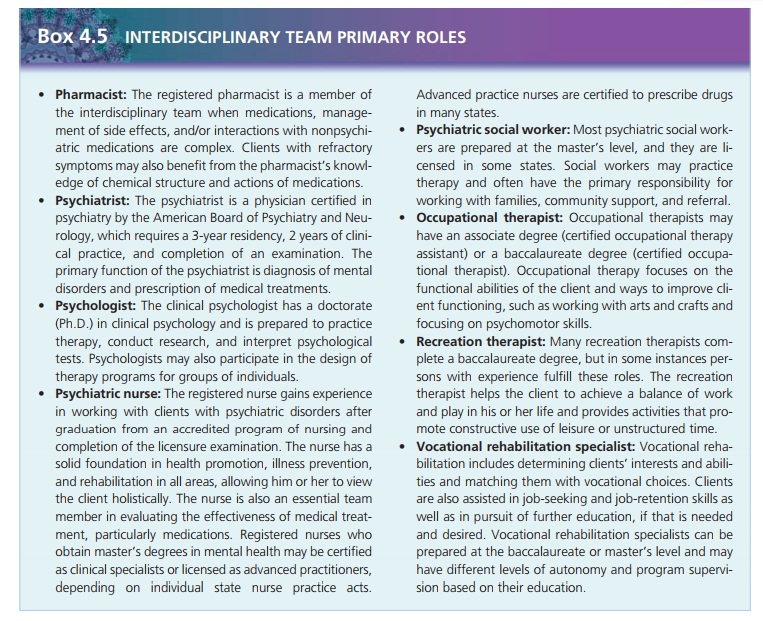Chapter: Psychiatric Mental Health Nursing : Treatment Settings and Therapeutic Programs
Assertive Community Treatment (1973)
Assertive Community Treatment
(1973)
One of the most effective approaches to community-based treatment
for people with mental illness is ACT. Marx, Test, and Stein (1973) conceived
this idea in 1973 in Madison, Wisconsin, while working at Mendota State
Hos-pital. They believed that skills training, support, and teach-ing should be
done in the community where it was needed rather than in the hospital. Their
program was first known as the Madison model, then “training in community living,”
and, finally, ACT, or the program for assertive treatment. The mobile outreach
and continuous treatment programs of today all have their roots in the Madison
model.
An ACT program has a problem-solving orientation:
Staff members attend to specific life issues, no matter howmundane.
ACT programs provide most services directly rather than relying on referrals to
other programs or agen-cies, and they implement the services in the clients’
homes or communities, not in offices. The ACT services are also intense; three
or more face-to-face contacts with clients are tailored to meet clients’ needs.
The team approach allows all staff to be equally familiar with all clients, so
clients do not have to wait for an assigned person. ACT programs also make a long-term
commitment to clients, providing services for as long as the need persists and
with no time constraints (Coldwell & Bender, 2007).
ACT programs were developed and flourished in urban settings. They
have also been effective in rural areas, where traditional psychiatric services
are more limited, frag-mented, and difficult to obtain than in cities. Rural
areas have less money to fund services, and social stigma about mental illness
is greater in rural areas, as are negative atti-tudes about public service
programs. Rural ACT programs have resulted in fewer hospital admissions,
greater hous-ing stability, improved quality of life, and improved psy-chiatric
symptoms. This success occurred even though certain modifications of
traditional ACT programs were required, such as two-person teams, fewer and
shorter contacts with clients, and minimal participation from some disciplines.
ACT programs have also been successful in Canada and Australia
(Latimer, 2005; Udechuku et al., 2005) in decreasing hospital admissions and
fostering community integration for persons with mental illness. In New York,
ACT services have been modified to include services designed to prevent arrest
and incarceration of adults with severe mental illness who have been involved
in the crimi-nal justice system.

Related Topics